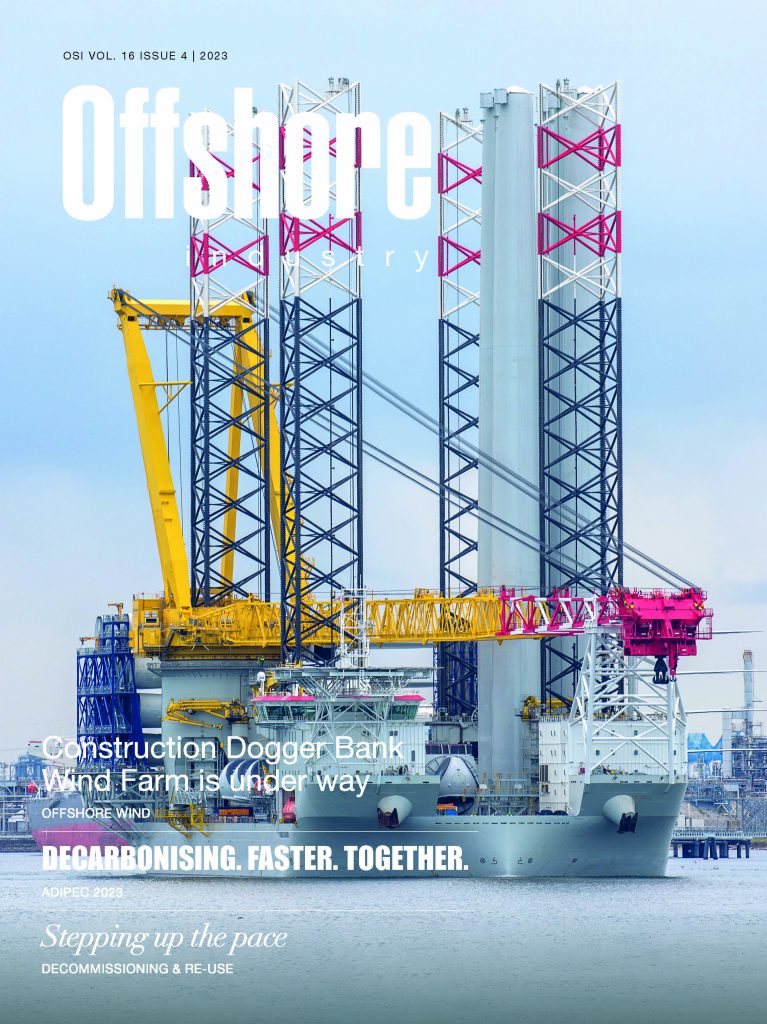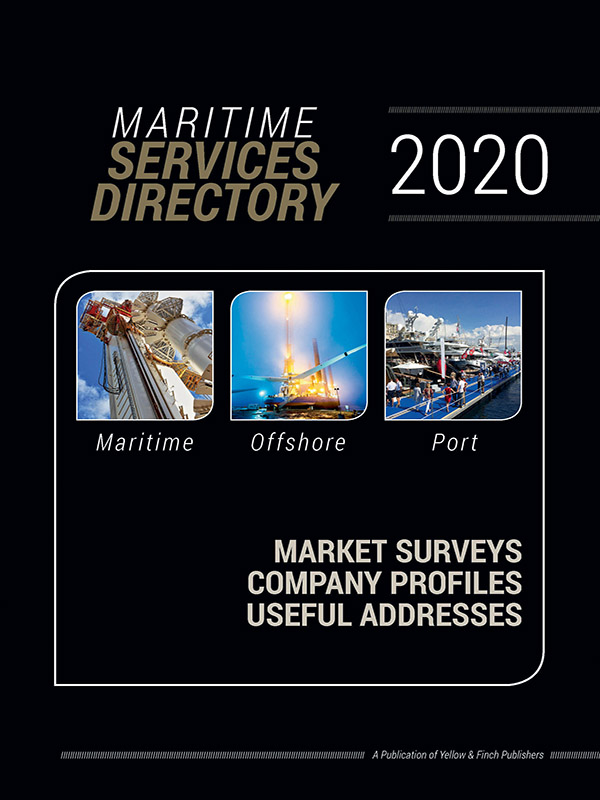Are you prepared? An Observation of an Industry from a Corporate Angle.
 Analysts and experts voice their thoughts and expectations about the oil and gas industry. Whatever analysts foresee, the fact is that many leading companies need to change their point of view and adjust their strategy in order to survive and to regain control.
Analysts and experts voice their thoughts and expectations about the oil and gas industry. Whatever analysts foresee, the fact is that many leading companies need to change their point of view and adjust their strategy in order to survive and to regain control.
IMAP DB&S’ Managing Partners Jan-Pieter Borst and Axel Fuhri Snethlage, in their business as trusted advisors, talk daily with numerous captains of industry. They see the focus, the struggle, the developments, opportunities, trends and challenges. From a legal and tax perspective, Hans Missaar (Partner Tax & Legal) and Dennis Giesbers (Senior Manager Tax) of Crowe Horwath Peak, witness and deploy the emergence of new revenue and business models to fit new and complex legislation and directives.
Offshore Industry talks with them to learn about their point of view.
The sector is going through a major transformation, what is the greatest change you have seen?
 Mr Borst: “The Oil & Gas industry is already redefining itself. In these difficult times, companies have started reducing operational costs and increasing forced redundancies. Since this period has lasted longer than expected, companies have started selling off assets. We are now at the start of the collaboration phase, where companies are looking for synergies and/or innovations in partnership with other companies in the industry.”
Mr Borst: “The Oil & Gas industry is already redefining itself. In these difficult times, companies have started reducing operational costs and increasing forced redundancies. Since this period has lasted longer than expected, companies have started selling off assets. We are now at the start of the collaboration phase, where companies are looking for synergies and/or innovations in partnership with other companies in the industry.”
Mr Missaar: “We are seeing the lasting need for cost reduction, but we are also witnessing the expansion of pay-rolling: the benefit of having sufficient personnel for a certain project while remaining flexible on the cost front. The unstable market and large number of job losses have had a major impact on budgets. On the other hand, there are a lot of possibilities for strongly innovative companies; it is, in our opinion, a matter of adjusting to a new era in this industry.”
With respect to this transformation, do transactions still take place?
 Mr Fuhri Snethlage: “Definitely, but we are seeing a significant split between healthy companies versus companies in distress. All transactions have synergy in common, both on the cost and the market fronts, and not only for the sole purpose of growth. Moneyed and patient parties, however, see this present time as the moment to buy. “
Mr Fuhri Snethlage: “Definitely, but we are seeing a significant split between healthy companies versus companies in distress. All transactions have synergy in common, both on the cost and the market fronts, and not only for the sole purpose of growth. Moneyed and patient parties, however, see this present time as the moment to buy. “
Mr Borst: “We are witnessing the survival of the fittest. The companies that have the ability to adapt to change, that can outsource their production and focus on innovation, own the future in an industry that was formerly very conservative. The survivors are eager to seek and create opportunities and find them, for example, in innovative ways of collaborating with competitors, suppliers and clients. Innovative solutions result in lower capex investments and lower opex expenditure.
Mr Fuhri Snethlage: The winners of today have the opportunity to hire the best professionals, since many motivated professionals became unemployed at an earlier stage.”
Are we in a current bear market or are there still investors interested in the oil and gas industry?
Mr Borst: Many parties think this is the moment to buy, so acquisitions by private equity companies are still taking place. Furthermore, we are seeing that some innovative companies, and companies active in certain niches are still performing very well. For these companies, it is a very interesting moment to sell the business because there is a lot of money in the market searching for well-performing companies.”
Innovative and Creative Solutions
Oil and gas companies are trying to postpone making large investments for as long as possible, especially when it comes to decommissioning installations. On the other hand, they cannot make cuts in safety and are forced to invest when so required by legislation. This often leads to innovative and creative solutions.
Companies not only have to deal with changing market circumstances; new legislation and tax regulations are becoming increasingly complex and are therefore very demanding for organisations.
Why are regulations and legislation becoming more complex?
 Mr Missaar: “Companies that are active internationally not only have to deal with the local laws of the different countries they operate in, but also with international law. Domestic and international law develops and changes quickly. For example when it comes to IT Security, the law and legal directives are out-dated; privacy and security have become major issues on the international agenda. Companies must be aware of rapidly changing International IT security legislation.”
Mr Missaar: “Companies that are active internationally not only have to deal with the local laws of the different countries they operate in, but also with international law. Domestic and international law develops and changes quickly. For example when it comes to IT Security, the law and legal directives are out-dated; privacy and security have become major issues on the international agenda. Companies must be aware of rapidly changing International IT security legislation.”
Mr Giesbers: “Another example is the taxation of individuals and companies who operate across borders. The fact that the law is changing rapidly is caused by many factors; one of them is that governments seek to protect their tax revenues. In June 2016, the ECOFIN council adopted the EU Anti Tax Avoidance Directive. This Directive contains five points, which are designed to counter harmful tax practices. The new Directive does not only affect companies that have implemented tax (optimisation) strategies, but also affects companies that are not focusing on tax planning at all. The offshore industry, considering its cross-border activities, will be especially affected by the new Directive. It is important for companies to actively anticipate the current developments and to review their tax position in time. The majority of these rules should be implemented by EU member states before January 1, 2019.”
What are the risks for a company unable to meet these new regulations and legislation?
 Mr Giesbers: “Companies need to fulfil compliance obligations in the countries where they operate. Depending on the specific country and the relevant compliance requirements, companies can be subject to audits by local authorities and can incur penalties, or be faced with other measures if they do not meet the local administration or documentation obligations. For example, when they fail to present sufficient transfer pricing documentation on intra-group services and supplies.”
Mr Giesbers: “Companies need to fulfil compliance obligations in the countries where they operate. Depending on the specific country and the relevant compliance requirements, companies can be subject to audits by local authorities and can incur penalties, or be faced with other measures if they do not meet the local administration or documentation obligations. For example, when they fail to present sufficient transfer pricing documentation on intra-group services and supplies.”
Mr Missaar: “A commercially strong contract may seem like a profitable deal, but if that same contract is non-compliant from an IT, tax and legal perspective, it could be a danger to the profitability of the company.”
How should companies anticipate the changing circumstances regarding rules and legislation?
Mr Missaar: “It always has to be the goal to organise processes in a way that serves the business. This means being effective and efficient, with a lot of flexibility – especially when it comes to legal contracts, for example. This combination is really hard to achieve.”
Mr Giesbers: “It means a continual process of checks and balances and internal controls, in order to be able to anticipate changes fast.”






